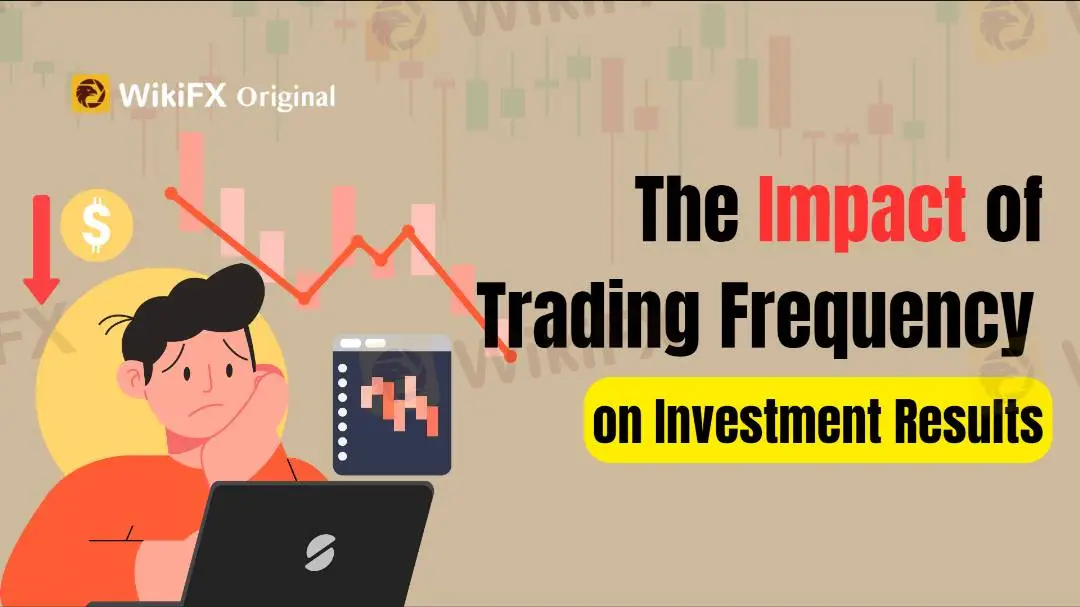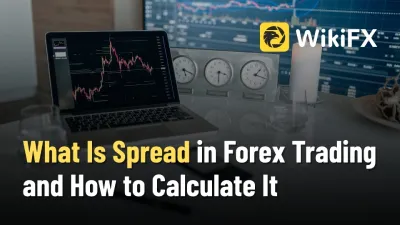What Is Spread in Forex Trading and How to Calculate It
Spread Meaning in Forex Guide: Forex spread defines the bid-ask price differential, representing the cost of entering a trade instantly.
简体中文
繁體中文
English
Pусский
日本語
ภาษาไทย
Tiếng Việt
Bahasa Indonesia
Español
हिन्दी
Filippiiniläinen
Français
Deutsch
Português
Türkçe
한국어
العربية
Abstract:Many individuals who incur losses share a common trait. They often either trade excessively or too infrequently because they fear trading at a loss.
Many individuals who incur losses share a common trait. They often either trade excessively or too infrequently because they fear trading at a loss.

Trading excessively
Excessive trading is one of the major factors leading to losses. In any 12-month market cycle, there are typically 4 to 6 months with clear trends. This means that any fluctuations during those periods are predictable and rational, allowing for profitable gains in a short timeframe.
Novices often become complacent in favorable situations. One survey showed that beginners tend to hold their positions twice as long when they achieve a 5% profit compared to when they incur a 5% loss. However, a 5% price movement is insufficient to determine the trend of a trade.
A prudent choice is to hold cash or invest in high-quality blue-chip stocks that you plan to keep for years. Unfortunately, many beginners become emboldened by successful profits and start seeking more gains every day, disregarding the fact that markets often experience larger swings before stabilizing.
In such cases, their profits are gradually eroded, resulting in a significant reduction in net returns.

Trading too little
Conversely, there are also many beginners who trade too infrequently. They only execute trades when all conditions align perfectly. Such a approach may suit long-term investments, those held for three years or more. However, for short-term trading, it means missing out on numerous profitable opportunities.
In the previously mentioned scenarios, overconfidence and greed clouded the judgment of novices. In the current situation, fear prevents them from entering trades due to the fear of losses. Consequently, they wait for clearer trends before entering the market, often right when the market begins to reverse!
Fearful beginners wait for the market to stabilize significantly before trading. Consequently, they can only benefit from the already slowed upward momentum. Assuming they manage to capture one-fourth of the profits from that uptrend, they achieve a 20% return. At first glance, this may seem like a decent gain, but the subsequent trades might lead to losses.
If an investor who achieved an 80% return incurs a 5% loss in each of the next five trades, they still have a respectable 45% return. Moreover, those five trades offer them opportunities for future profits. On the other hand, an investor who only gained a 20% return will not be able to execute five more trades, potentially leading to losses in their investment portfolio.
Keep your emotions in check
Legendary billionaire Warren Buffett often advises people to learn how to manage their emotions before managing their money. A trader's emotions play a significant role in their trading results.
That's why you should constantly strive to control your emotions and avoid letting fear and greed influence your chances of earning maximum profits. Once you can master your emotions while investing in any instrument, you'll have a clear mindset when investing in other trading tools.
When the market is steadily rising, you must move forward boldly; when the market is sideways, you must proceed cautiously.

Before conducting any trades, be sure to search for the broker's ratings on WikiFX to preliminarily determine if it is a blacklisted platform.
Looking to invest in US stocks, forex, and futures but worried about scams? Find the most comprehensive brokerage information here.
Prior to depositing funds, make sure to download the anti-fraud 165: WikiFX APP to safeguard your capital.
Disclaimer:
The views in this article only represent the author's personal views, and do not constitute investment advice on this platform. This platform does not guarantee the accuracy, completeness and timeliness of the information in the article, and will not be liable for any loss caused by the use of or reliance on the information in the article.

Spread Meaning in Forex Guide: Forex spread defines the bid-ask price differential, representing the cost of entering a trade instantly.

As the new year begins, WikiFX extends our sincere gratitude to traders worldwide, our industry partners, and all users who have consistently supported us.

Dear Forex Traders, When choosing a forex broker, have you ever faced these dilemmas? Dozens of broker advertisements, but unsure which one is truly reliable? Online reviews are either promotional content or outdated/incomplete? Want to learn about real users’ deposit/withdrawal experiences but can’t find firsthand accounts? Now, your experience can help thousands of traders and earn you generous rewards! The campaign is long-term and you can join anytime.

Markets turn cautious as investors await the Fed’s December meeting minutes. The US Dollar stabilizes near 98.10, gold drops sharply from record highs, while GBP/USD, EUR/USD, and USD/JPY react to central bank signals.
